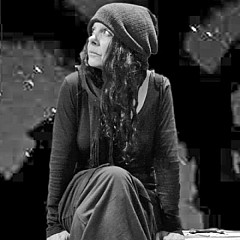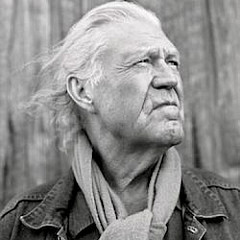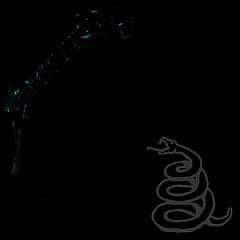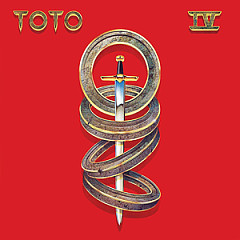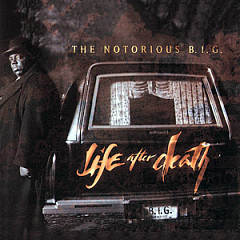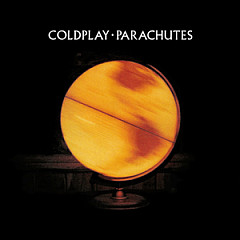 For the uninitiated, please explain why Miles Davis is so important.
For the uninitiated, please explain why Miles Davis is so important.Miles Davis is to jazz is what Mozart is to classical music or The Beatles are to popular music. He is by far the most influential jazz musician of all time and it's unlikely that anyone will ever supplant this position. He started out as a teenager playing bebop (a frenetic style of jazz) with the saxophonist giant Charlie Parker, and ended almost 50 years later, combining jazz with hip-hop. He recorded the best known album in jazz (Kind of Blue) while still in his early 30s and it contains the best known jazz track: "So What."
In the 1950s, Miles formed one of the greatest jazz quintets ever, which included the saxophonist John Coltrane, and in the early 1960s, he formed another great quintet (some say the greatest jazz quintet of all time) with keyboardist Herbie Hancock, saxophonist Wayne Shorter, bassist Ron Carter and drummer Tony Williams. Miles went on to combine jazz with rock in the 1970s, recording landmark albums such as Jack Johnson and Bitches Brew, and then moved into jazz-funk with an amazing band that recorded groundbreaking albums such as Pangaea and Agharta. In the 1980s, albums such as Tutu and Doo-Bop saw Miles continue to push at the boundaries of jazz.
The roll call of musicians who played with Miles is incredible and his influence went beyond jazz - everyone from Q-Tip to Eno, and from Radiohead to the Red Hot Chili Peppers says they were influenced by Miles. In 2006, Miles was even inducted into the Rock and Roll Hall of Fame. Miles's importance isn't just about the music he created, but in his attitude. He was constantly changing; evolving, searching and challenging everyone, whether it was his musicians, his critics or his fans.
Unlike Jazz musicians like Al Hirt and Hugh Masekela, Davis never had a pop hit. Why do you think this is?
If there's one thing Miles would have loved, it would have been to have had a pop hit! Unlike some jazz fans - who think that the only good music is that which is appreciated by a small number of people - Miles always wanted to be popular. That's why he hated the term "jazz," which he felt put his music in a ghetto. Miles did consider making an album of pop tunes (during the mid 1980s, his band recorded dozens of pop tunes from artists that included Michael Jackson, Tina Turner, DeBarge, Kenny Loggins and Dionne Warwick) but the idea was scrapped. However, he did record and perform two pop tunes - "Human Nature" from Michael Jackson's Thriller album and Cyndi Lauper's "Time After Time."
Miles felt that with better marketing, the latter could have been a huge pop hit. Later on, he recorded half a dozen tunes that combined jazz and hip-hop, and a couple of these ("Blow" and "The Doo-Bop Song") were released as singles after his death, but didn't chart. I think it was partly poor marketing that stopped Miles having a hit, but it was also the fact that Miles's music contained an element of jazz sensibility, and that made his music less commercial in terms of garnering significant radio play - jazz stations didn't consider it proper jazz (whatever that is) while rock and pop stations thought it wasn't really for their audiences. Miles even made some music videos, but they got little broadcast time.
What is different about Davis last decade of work compared with his earlier music?
First of all, Miles's music was always changing. If you listen to an album like Kind Of Blue (recorded in 1959), and then, On The Corner (from 1972), it's hard to believe that the same artist produced both albums. So in that sense, Miles's 1980s music was no different from what he did in earlier periods. But in terms of style, then there was a big difference. You have to remember that Miles more or less dropped out of the music scene between late 1975 and early 1980 - as far as we know, he only stepped into the recording studio once between 1977 and 1980. The music Miles made in the last ten years was more accessible in the sense that much of it followed the traditional music structure of theme-solo-theme, whereas the music just prior to his layoff was often dense, abstract and seamless - listen to the album Agharta and you'll hear what I mean.
Miles's first album of the 1980s, The Man With The Horn, even contained a disco-funk track "Shout" and a pop ballad with vocals (the title track). From the mid-1980s, there was an even bigger shift towards a more commercial sound with albums like Tutu and You're Under Arrest. During the 1980s, Miles also recorded with a number of soul, pop and rock acts including, Prince, Cameo, Chaka Khan, Toto and Scritti Politti.
What was Davis like to work with during this period?
From 1981 to 1983, Miles worked in a similar way to how he had previously, which basically meant going into the studio with an idea or concept and then working with the band to produce the finished product. Well, almost finished product, because Miles and his band would essentially experiment and jam, and then Miles's producer - the late Teo Macero - would craft and edit the finished product. There's a lot of controversy over how big a role Macero played in Miles's music - Macero once told me he was to Miles what George Martin was to The Beatles.
In the first few albums Miles made in this period, the music was created spontaneously, and as a musician, you really had to be on your toes. Miles would also test his musicians: Miles once told bassist Marcus Miller during a recording session to play an F and G vamp, and when Miller complied, Miles stopped the band and asked Miller if that was all he was going to play? When Miller resumed and started playing more notes, Miles stopped the band again and told Miller to just play F and G and then shut up!
From around 1983, Miles began to step back a little from the process of music making. He parted from Teo Macero and began letting younger musicians take greater control over the composing, arranging and producing. He brought in keyboardist Robert Irving III to co-produce the Decoy album and Irving also produced the album You're Under Arrest. With the recording of Tutu, the process was even more hands-off, with Marcus Miller virtually single-handedly composing, producing, arranging and playing all the instruments on the album, and Miles then going into the studio to overdub his trumpet parts.
Please tell us about some of the standout tracks from Davis' 1980-1991 period.
Whew - where do I start! "Jean-Pierre," has a child-like melody and became Miles's signature tune. The funny thing is, no one agrees on the origin of the tune! Whatever, it was a tune Miles would close almost every show with for years. "Decoy" is an exciting track with a fantastic bass line by Darryl "The Munch" Jones (who now plays with The Rolling Stones). Jones had learnt to play with tune using his fingers, but just as they were about to record a take, Miles spoke to Jones over the phone and told him to thumb it and it transformed the track. "Tutu" was written and largely performed by Marcus Miller, who had asked producer Tommy LiPuma if he could contribute some music to Miles's first album for his new label Warner Bros. Miller brought along some demo recordings and LiPuma suggested that Miller develop the demos rather than use a band. "Tutu" has got two terrific bass lines - one fretted, the other fretless - and makes imaginative use of synthesisers and drum machines. Miles plays beautifully on it. There are many more tunes I could mention, but I'd better stop!
Why did Davis record "Time After Time" and "Perfect Way," and what do you think of those recordings?
Miles had always played popular tunes - in the past, tunes such as "My Funny Valentine" and "If I Were A Bell" were part of his repertoire - and when Miles heard the Cyndi Lauper track, he just fell in love with the melody. In fact, Miles played this tune in almost all of his concerts from 1984 until just before his death in 1991. If you get a chance, try and hear a live version of it, which is superior to the album version. When Miles was recording the Tutu album, producer Tommy LiPuma thought the album needed a cover version, so he gave Miles lots of pop albums to listen to - Miles selected Scritti Politti's "Perfect Way." In fact, Miles liked the tune so much, that he originally planned to make it the title track. Miles later became friends with singer Green Gartside and played on the Scritti Politti track "Oh Patti." He even appeared in the music video. I have to admit that the album version of "Perfect Way" is not one of my most favorite of Miles's tunes and the rather mechanical rhythm track restricts what Miles can do with it. However, the live version was more fluid and included a nice call-and-response section featuring Miles and the bass player.
The thing that stood out for me was how much nicer Miles was than I had been led to believe! There's no doubt that Miles could be nasty at times and the way he treated women could be horrible. But again and again, musicians, engineers and producers who worked with Miles would comment on his humour, sensitivity and support. He was also more vulnerable than you might you think. The other thing was how good the music was! Even though I was a big fan of this period, there were several albums I hadn't played for years because at the time, I didn't think much of them. But on re-listening, I radically changed my original assessment of them.
What is your favorite anecdote from your book?
I love the story about saxophonist Branford Marsalis turning up for his first recording session with Miles. Miles is in the studio bad-mouthing his musicians and Branford is standing behind him. Miles turns around to face Branford and asks him if his mother hadn't taught him any manners? When Branford replies in the affirmative, Miles asks if it's good manners to simply walk into someone's home without first announcing your presence? Branford instantly knows that Miles is playing mind games with him, so leaves the studio, knocks on the studio door and waits to hear Miles call him in. But there is only silence. After hanging around for about an hour, Branford goes home. That evening, Miles calls Branford and the conversation they have is hilarious!
How did better technology affect Davis' music?
Miles was always fascinated by technology and used early synthesisers in some of his 1970s bands. He loved the possibilities offered by polyphonic synthesisers, drum machines and studio technology with its multi-track recording, overdubbing and computer editing. Miles played an Oberheim OB-Xa synthesizer both in the studio and on the road, but he relied on people such as Robert Irving, Adam Holzman, Marcus Miller and Jason Miles, who understood the technology. If you listen to Miles's music from 1983 onwards, synthesisers played a large part in creating the aural textures and landscapes of the music. Miles once said that a synthesizer didn't stop unless you forgot to pay the electricity bill - and a drum machine always kept time. On the album Tutu, it was essentially Miles playing with an electronic orchestra. Some criticized Miles for his reliance on technology, arguing that you lost the spontaneity you get from playing with real musicians. However, after recording the album Amandla, Miles seemed to go back to basics in the studio, with less reliance on technology and multiple overdubbing.
Please explain why many musicians have criticized Davis' later work, and why you disagree.
The first thing to say is that whenever Miles moved into a new era of music, he was always criticized by fans and critics who wanted him to continue playing the style of music they loved, so this was nothing new. Some felt that Miles was no longer the innovator he once was and to some degree, they were right. The period from 1964-1975 was incredible in terms of Miles's creativity but you have to remember that Miles was younger, healthier, at the peak of his powers and the climate for musical change and innovation was at its zenith. In the 1980s, Miles was older, his health deteriorated and the music industry was more conservative. But Miles never stopped changing or challenging his listeners. He remained musically curious until the day he died and always had open ears to all forms of music. Some say the music of the 1980s will not be as long lasting as that from other periods, but I disagree. Some of Miles's most memorable music was produced in the 1980s and in time, many critics will finally catch up with it, just as they are now doing with the music from the 1970s.
January 6, 2009
Learn more at thelastmiles.com
More Song Writing




